Blockchain Technology: Revolutionizing Real-World Applications Part 2.
Blockchain Technology: Revolutionizing Real-World Applications Part 2.
In last week's article, we delved into the transformative power of blockchain technology, uncovering its diverse applications across various industries. Now, let's continue our exploration by unveiling five more innovative ways blockchain is reshaping the real world.
From enhancing supply chain transparency to revolutionizing digital identity verification, blockchain's potential knows no bounds. Keep reading as we explore and unravel the next frontier of blockchain applications, propelling us into a future of efficiency, security, and decentralized trust.
Personal Information
Blockchain technology offers a promising solution for securing personal information in our increasingly digital world. By leveraging its decentralized and immutable nature, individuals can possess a higher level of control over their sensitive data while mitigating the risk of unauthorized access and breaches. Through blockchain-based identity management systems, users can create unique digital identities that are cryptographically secured and linked to their personal information. These decentralized identities enable individuals to selectively share specific attributes or credentials with trusted parties, ensuring privacy and minimizing the exposure of sensitive data. Furthermore, blockchain-powered authentication mechanisms eliminate the need for centralized authorities, reducing the likelihood of single points of failure and enhancing overall security. As data breaches and identity theft continue to pose significant threats, blockchain technology emerges as a robust solution for safeguarding personal information in an increasingly interconnected world.
Voting
Blockchain technology presents a compelling solution for revolutionizing the voting process, offering transparency, security, and integrity to electoral systems worldwide. By leveraging blockchain's decentralized ledger, each vote cast is recorded as a tamper-proof transaction, ensuring the immutability of the electoral record. This eliminates the risk of fraud or manipulation, as votes cannot be altered retroactively without consensus from the network. Additionally, blockchain-based voting systems enable greater accessibility and inclusivity by allowing voters to participate remotely via secure digital channels. Through cryptographic techniques, voter anonymity can be preserved while still maintaining the integrity of the electoral process. Moreover, blockchain technology facilitates real-time auditing and verification of election results, instilling trust and confidence in the outcome. As governments and organizations seek to modernize voting infrastructure and enhance democratic practices, blockchain emerges as a transformative tool for ensuring fair, transparent, and verifiable elections.
Sharing Medical Data
Blockchain technology holds immense potential for transforming the sharing of medical information, offering a secure and efficient solution to address the complexities of healthcare data management. Through blockchain-based platforms, patients can maintain ownership and control over their medical records, granting permission to healthcare providers, researchers, and other authorized parties to access specific information as needed. The decentralized nature of blockchain ensures the integrity and privacy of sensitive medical data, as each transaction is cryptographically secured. Additionally, blockchain enables interoperability among individual healthcare systems, facilitating seamless exchange of information while adhering to stringent data privacy regulations. By leveraging smart contracts, patients can consent to the use of their data for research purposes while retaining transparency and accountability throughout the process. As the healthcare industry continues to grapple with issues of data silos and interoperability challenges, blockchain emerges as a transformative solution for enhancing patient-centric care, improving clinical outcomes, and driving innovation in medical research and development.
Non-fungible Tokens
Blockchain technology has sparked a revolution in the world of digital art and collectibles through the creation of Non-Fungible Tokens (NFTs). These unique digital assets are powered by blockchain, enabling creators to tokenize and authenticate their work, while buyers can securely purchase and own these one-of-a-kind items. Each NFT is recorded on a blockchain ledger, ensuring its provenance, scarcity, and ownership history are transparent and immutable. Smart contracts embedded within NFTs enable creators to receive royalties automatically each time their artwork is resold, providing a novel way for artists to monetize their creations in the digital realm. Moreover, blockchain-based marketplaces have increased access to digital art and collectibles, allowing artists to reach a global audience and buyers to diversify their collections with unique, verifiable assets. As the NFT market continues to grow rapidly, fuelled by increased interest from collectors, investors, and creators alike, blockchain technology remains at the forefront of this innovative digital economy, reshaping how we perceive and interact with art and collectibles in the digital age.
Logistics
Blockchain technology is radically changing logistics and supply chain tracking by providing a transparent ledger for recording and verifying transactions at every stage of the supply chain. By leveraging blockchain, companies can trace the journey of products from raw materials to the end consumer with unprecedented accuracy and efficiency. Smart contracts embedded within the blockchain automate contractual agreements and streamline processes such as payments, customs clearance, and inventory management, reducing delays and disputes. Additionally, the decentralized nature of blockchain ensures data integrity and security, mitigating the risk of fraud, counterfeiting, and unauthorized access. With blockchain-enabled supply chain tracking, businesses can enhance visibility, traceability, and accountability across their operations, leading to improved efficiency, reduced costs, and enhanced trust among stakeholders. As the global economy becomes increasingly interconnected, blockchain technology is poised to revolutionize the way goods are tracked, traded, and transported around the world.
In conclusion, the five applications of blockchain technology explored in this article represent just a glimpse into the vast potential of this innovative technology. From securing personal information and fundamentally changing voting systems to enhancing healthcare data management, digital art ownership, and supply chain tracking, blockchain is reshaping industries and redefining the way we interact with digital assets and information. As we continue to unlock new possibilities and overcome challenges, blockchain stands as a beacon of decentralization, transparency, and trust in an increasingly interconnected world. With ongoing advancements and adoption, the impact of blockchain technology is poised to leave a mark across diverse sectors, empowering individuals, businesses, and societies to thrive in the digital age.


